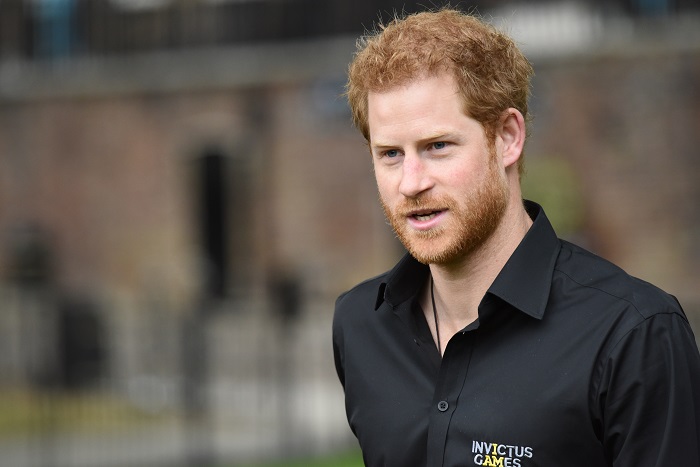Prince Harry, Duke of Sussex, recently joined HR tech start-up BetterUp as its chief impact officer. Serena Williams, one of the greatest tennis players of all time, is now a key strategic advisor to The Mom Project, another HR tech start-up that focuses on the intersection of employee experience and evolving roles for mothers in the workforce. Naomi Osaka, another of the greatest tennis players of all time, is sponsored by Workday and just emphasized the importance of mental health to a global audience when she withdrew from the French Open for mental health reasons.
All three are examples of the emergence of celebrity marketing in the HR vertical.
The big HR tech vendors routinely sponsor athletes—you know, the ones who are logoed up like a NASCAR driver. The bets are always safe and focused on the athlete’s performance. Some VIP customers might be invited to a meet and greet. But the sponsorships are only marginally related to the underlying business.
I can’t think of a single deal won on the basis of celebrity involvement. Can you imagine going to the CEO with a multimillion-dollar contract because Oprah was on the vendor’s payroll? Generally, people in the trade write it off as the egocentricity of entrepreneurs made good. Rich guys (usually) love to expand their personal validation machine to include recognizable faces. A big business success means VIP status. Celebrities are the Gucci handbags of the entrepreneurial class.
While celebrity alignment can be effective for consumer products, the return in a B2B setting is unclear. Prudent CFOs don’t look kindly on expenditures without a profound business case. If the vendor can afford Jennifer Aniston, the price is too high.
In HR tech, the largest marketing problem has to do with differentiating your product from theirs. New ideas become commodified quickly.
Read about the latest trends in HR technology HERE.
A few companies have managed to really differentiate their offerings. Ceridian turned a moribund brand into a market leader. Ultimate Software, in its day, stood apart from the market with its emphasis on a company’s relationship with its employees. Workday crafted a brand that delivered strong customer satisfaction from its buyers. ADP has effectively maintained its reputation for data, compliance and reliability.
The norm, however, is muddled language describing look-alike functions. Marketing victories are short-term things. There are 50 competing engagement products and none of them do the same thing. The HR marketing gods must regularly have thesaurus-burning parties.
Once you’ve entered the game and succeeded, you spend all of eternity defending your success. Marketing in the B2B sector always reverts to the mean. But the latest trend of hiring a celebrity to try to differentiate is a distraction.
Let’s look at the current cases.
 BetterUp is an amazing company that helps organizations use employee personal growth and development to achieve business objectives. It fields one of the most innovative and effective diversity and inclusion programs. Hiring the Duke of Sussex as its chief impact officer suggests that the company can’t see the strength of its own offering. The idea that Harry’s experience with mental health is generalizable is an actual fairy tale about a handsome prince.
BetterUp is an amazing company that helps organizations use employee personal growth and development to achieve business objectives. It fields one of the most innovative and effective diversity and inclusion programs. Hiring the Duke of Sussex as its chief impact officer suggests that the company can’t see the strength of its own offering. The idea that Harry’s experience with mental health is generalizable is an actual fairy tale about a handsome prince.
The Mom Project is as amazing as Williams. Having Williams as a strategic advisor is a sound alignment. But what’s added beyond name recognition? It’s hard to imagine that an athlete, even an extraordinary one, can actually help with either recruiting or the powerful analytics TMP is developing. Williams ends up looking like a hood ornament and, in the process, diminishes TMP’s credibility.
Finally, Osaka is a case study in her own league. Mental health and one’s ability to set personal boundaries are the real workplace issues of the coming decade. Employees are learning to say no to uncomfortable working conditions, unrealistic deadlines, unrelenting travel, demeaning tasks and forced sacrifices of time with loved ones. While celebrities deal with a unique set of issues, everyone can identify with the need to resist demands for on-call vulnerability. So, when Osaka withdrew from the French Open, she created a powerful opportunity for her sponsors to take up her cause.
Of these three currently visible celebrity marketing cases in HR tech, Osaka’s story is the most important. People are burnt out, uncertain and stressed. Employers need to recognize that we can’t change everything then expect things to just go back to what they were. Osaka is a great example of doing what’s right even if it’s not popular.
When your company is aligned with a celebrity, it gets the whole star. Sometimes, it’s an opportunity to shine light on something important. More often, it’s just a bright, twinkling distraction.